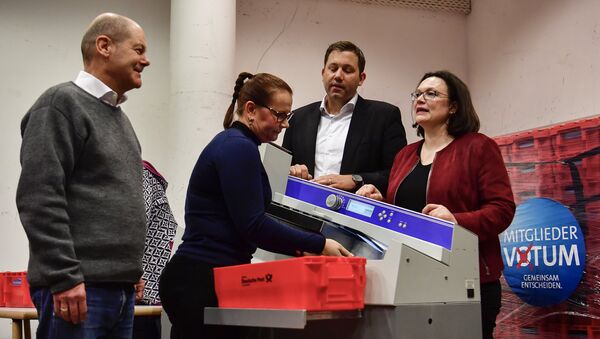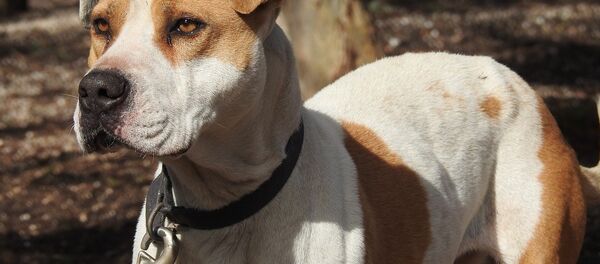Around 66 percent of SPD party members have approved the establishment of a new coalition with the CDU/CSU alliance, a party official has announced, and it will enter the government, Hamburg burgermeister and projected finance minister Olaf Scholz has stated.
Merkel has congratulated the SPD on the party's Twitter and said she was looking forward to working with the Social Democrats.
— CDU Deutschlands (@CDU) March 4, 2018
I congratulate the SPD on this clear result and I am looking forward to our further cooperation for the good of our country.
On Monday, majority of the CDU also voted in favor of the coalition with the SPD.
Thus, Germany is on track to finally break the six-month-long political deadlock. The grand coalition of the parties who have been governing the country since 2013 will reemerge, and Angela Merkel will likely be sworn in as Chancellor in March, taking the office for the fourth consecutive term.
READ MORE: Schulz Stepping Down as SPD Leader Unlikely to Impact German Politics — Lawmaker
The new government has been in the making since then. The CDU/CSU first attempted to form a coalition with the Greens and the Free Democratic Party, but the talks with those parties collapsed. The alliance was then left with several options, including the formation of a minority government on its own, holding a new election or negotiating with the SPD.





